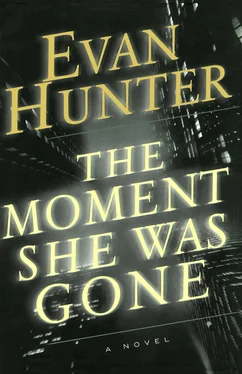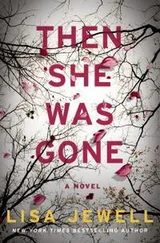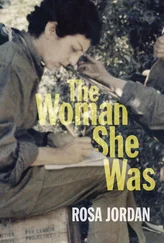I don’t know what she’s talking about.
Or is she talking to me?
Oh, Jesus, is she consulting with her goddamn voices?
“The pony ride,” she says, turning to me. We are still holding hands. “You weren’t there,” she says. “It was at Grandma Rozalia’s house.”
My grandmother used to have a house in New Rochelle. My mother took us there a lot after my father abandoned us. I guess maybe he did truly abandon us in that we never heard from him again. That is to say, he duly divorced my mother, and paid alimony and child support, but he never tried to see either Aaron, or me, or my sister. I often wonder how a person can do that. Never see his own children again. Sometimes, I’m happy Maggie and I never had kids.
Anyway, my grandmother Rozalia was Hungarian, like my grandfather Aaron, but she used to smoke these cigarettes she imported from France. She used to smoke them in a long cigarette holder. She had long black hair and cushiony breasts, and she would stand by the fireplace in the front room of her New Rochelle house and smoke her cigarettes like a countess or something. Annie used to play with her dolls and I used to build Lego houses by the fire while the grownups talked about important matters. When we got older, Annie used to tease my grandmother all the time. Whenever she wanted to really get her goat, she would ask, “Grandma, how do you make Hungarian chicken soup?” and my grandmother would say, “Get out of here, you,” and wave her away with a hand covered with diamonds, and Annie would say, “First you steal a chicken,” and Grandma would laugh each and every time. I don’t know why I wasn’t at Grandma’s house that day of the pony ride — if it ever happened. Maybe I was at a Yankee’s game with Aaron. It was only a short subway ride to the Bronx, and my mother let us go alone all the time. We never got molested or anything.
This man came around with his pony at around three in the afternoon. It was a brown and white Shetland with a big saddle on it so that two kids could take a ride at the same time, one behind the other. The man was wearing a ragged straw hat, sandals, baggy blue trousers, and a bright green, short-sleeved shirt with a little blue sweater vest open over it. He charged a dollar to take the kids once around the block on his pony. When my sister saw him outside through the lace curtains in Grandma’s front room, she started dancing up and down and begging Grandma to let her go on the pony, please. Grandma finished her cigarette and then took my sister outside and watched while the grizzled old man in the straw hat lifted first Annie onto the saddle, and then an eleven-year-old boy Annie had never seen before in her life.
“The old man copped a feel when he lifted me onto the saddle,” she tells me now.
“What do you mean? You were only seven. What was there to feel?”
“He slipped his hand under my dress. Onto my panties. He patted my ass.”
“Come on, Annie.”
“He did. Would I lie about something like that?”
“Well, no, but...”
But yes, according to Bertuzzi, Annie has lied — or at least distorted the truth — often enough to warrant a diagnosis of schizophrenia. Hallucinations, he called them. Delusions, he called them. So why not now? Why not lie — or at least distort the truth — about a man who gave her a goddamn pony ride when she was seven? She has stopped taking her medication. Why not sail off into Looneyland again? If ever she d been there at all. Why not listen to whatever voices are now concocting this cockamamie story about child abuse?
“Maybe that’s what gave that kid the idea,” she says.
“What kid? Who do you mean?”
“The kid behind me on the pony. He got a hard-on,” she tells me.
“That’s okay, I don’t want to hear it,” I say, and I drop her hand.
“That’s why I ended up in that hospital in Italy,” she says.
I say nothing.
“Because he put his hand under my dress and got a hard-on. I thought that ride would never end. The old man kept leering at me all the while this fat little bastard kept prodding me from behind with his silly little prick. I think he came on the back of my panties, yes. My panties were all sticky when I got oft that horse, that pony. I think he must have come on me. I’d like to tell someone about this, Andy. I really think it’s the source of all my problems.”
I think, Oh, Jesus, they’ve convinced her she can fool a psychiatrist!
“My inability to communicate with people of the opposite sex,” she says. “Except you, of course, I can tell you anything.”
Yes, anything. Except the fact that this isn’t you talking, this is whoever’s inside your head, inventing a story you can try on a psychiatrist, if ever we get to see one, which is unlikely since it’s not you making these decisions, Annie, it’s your goddamn voices!
“My inability to socialize,” she says. “To form commitments. I think it all goes back to when I was seven years old and took that pony ride, I really do. I’d like to tell someone about it, Andy. I’d like to get to the bottom of it.”
“Well... who do you mean, honey?”
“Can you find a holistic psychiatrist?” she asks.
I catch my breath.
“I won’t take any more medicines, Andy. If you can’t find someone who...”
“I think I can find someone,” I say.
“Good,” she says, and takes my hand in hers again.
The last day of July dawns clear and bright and breezy.
I take the subway uptown from Chelsea and arrive at my mother’s apartment at nine o’clock sharp. My sister is dressed casually, which I think might be a good sign. No starched blouse and pleated skirt, no ribbons in her hair. Instead, she is wearing faded jeans and a white T-shirt (no bra, I notice), the barbed-wire tattoo showing on the bicep of her left arm. She asks if we have time for a cup of coffee, and we sit together in the little windowed alcove in my mother’s apartment, the three of us sipping coffee and eating toasted bagels, and talking about how surprisingly cool it is for the end of July. My mother looks apprehensive. I sometimes think she is as frightened of psychiatrists as Annie is. But my sister seems cheerful and unafraid, and I begin thinking, Gee, maybe she is only neurotic, maybe some son of a bitch or bitches did actually molest her when she was seven years old, maybe the doctor in Sicily was wrong, maybe my poor dear beloved sister is in fact a victim.
We sit in glowing sunshine eating bagels and sipping coffee.
It is a hopeful morning.
Dr. Sarah Lang is a not unattractive woman in her early fifties, I guess, wearing her gone-to-white hair shoulder length, wearing as well black-rimmed eyeglasses that frame and highlight the effect of her vivid blue eyes.
“Miss Gulliver?” she asks.
“Yes?” Annie says.
“Did you want to come in, please?”
“I want my brother to come in with me, if that’s all right,” Annie says.
Dr. Lang looks at me.
“I can wait out here,” I say, “that’s okay.”
“I want you to hear this,” Annie says.
Dr. Lang looks from one to the other of us.
“Would that be all right?” Annie asks.
“It’s your nickel,” Dr. Lang says, and smiles.
Annie smiles back.
“So come in,” Dr. Lang says. “Both of you. Please.”
The windows in her office face north on Ninety-sixth Street. This is ten in the morning; the light is oblique. There is a desk with some papers on it. There are diplomas hanging on the walls, nothing else. Three or four diplomas from various universities and medical schools. No framed paintings. Just the diplomas and a license to practice psychiatry in the state of New York, and a commendation of some sort from a psychiatric society. There is a long leather couch to the right of the desk, but Dr. Lang motions to two matching leather chairs slightly to the left, and my sister and I sit facing her.
Читать дальше












